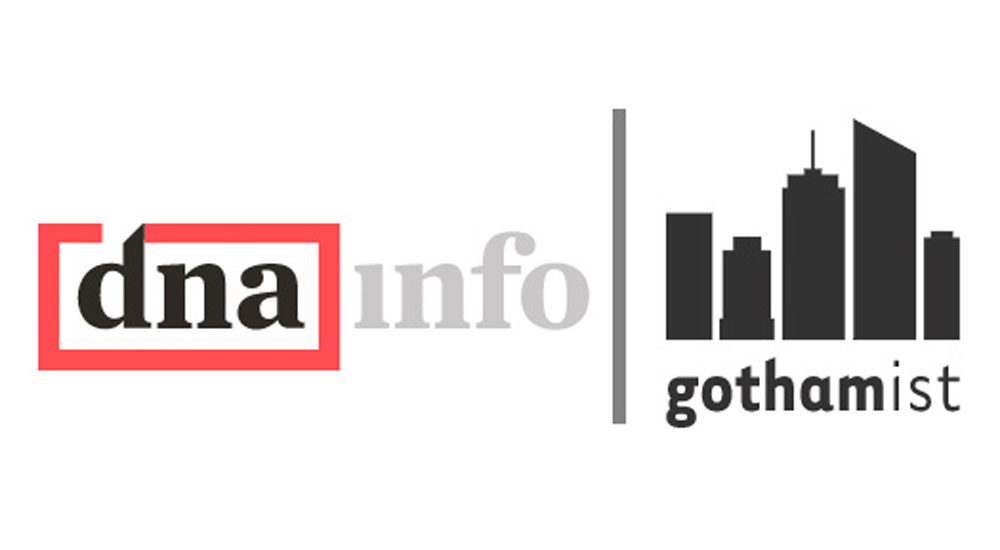Out of work after DNAinfo shutdown? Start your own news site
DNAinfo journalists who are out of a job: if you've got the drive to be an entrepreneur, we've got a

The billionaire owner of DNAinfo, Gothamist, Chicagoist, LAist and other local news properties pulled the plug on his websites Thursday. Joe Ricketts even removed the archives of his reporters' work, with the move coming a week after the New York newsroom voted to join a union.
The websites were shut down with no warning at the close of the business day on the East Coast, even as stories were being published. Each of them was entirely replaced with a brief announcement from the owner.
The DNAinfo journalists who suddenly found themselves without jobs should take a few days to enjoy some much-deserved time with their families, and then get in touch with one of the 180-plus members of Local Independent Online News Publishers. If you've got the drive to be an entrepreneur, we've got a network of independent publishers who are ready and willing to help you establish a news outlet that is focused on your community.
Start your own indie news site, and join us!
Like the withering of AOL's Patch before it, Ricketts' various sites ran out of gas not because local news isn't a solid business, but because they're not truly local.
There were great journalists working for those sites, doing fine reporting (including some excellent accountability journalism). But there's a vast difference between a billionaire owner who eventually gets bored and an authentically local publisher who's invested in his or her business in a fundamental way.
Ricketts said that his sites weren't making enough money: "…while we made important progress toward building DNAinfo into a successful business, in the end, that progress hasn't been sufficient to support the tremendous effort and expense needed…."
The local news industry is strong, healthy and growing — the real local segment of the industry. LION members and our many colleagues running local news websites are demonstrating that every day. In fact, more than 200 indie pubishers and experts were just at our annual conference in Chicago over the weekend — the largest ever local indie news gathering.
"I'm hopeful that in time, someone will crack the code on a business that can support exceptional neighborhood storytelling for I believe telling those stories remains essential," Ricketts said.
It's not a simple task, but the members of LION have shown that dedicated effort can make it work.
Local doesn't scale; it certainly doesn't scale enough for billionaires. We've seen it again and again; chains and large operations trying to templatize the production of news. That's not a tactic that worked in print for Gannett and others, and it certainly won't work online. The troubles of large-scale attempts at covering local news are only relevant to LION Publishers in that they show the contrast between the operations of local businesses and those that aren't authentically local.
Many locally run news outlets are finding success – because their readers and sponsors value their community connections. Local news sites can connect local small business owners with the engaged local readers who are their customer base — and do so effectively and affordably.
Those grassroots connections are vital, because communities should control their own fate when it comes to their sources of news and information. Being entirely dependent on the whims of a hedge fund-owned conglomerate or billionaire isn't a solid longterm strategy.
We regularly see LION members announcing that their readership and revenues are reaching new heights, that they're hiring new staffers and deepening their coverage.
Local news is successful when it truly is local — historically, when newspapers and radio stations were owned by families or local partnerships, they served their communities more effectively. Chains broke that model, focusing more on quarterly reports, stock prices and executive salaries than long-term investments. Local news organizations must be of their communities, not just in them to ship profits out of town. Local news must respect readers: know what they want to know, know what they need to know, and provide it quickly, accurately and comprehensively. Cookie-cutter editorial priorities mandated from the home office are the complete opposite of that.
The end of DNAinfo is terrible in the short term for the employees who suddenly find themselves pushed out. But it's not a bad-news banner headline for local news online. Instead, it's a chance for talented, motivated entrepreneurs to work together rather than work for the Man.
Sign up for the weekly newsletter
Join the LION mailing list to get our weekly roundup of opportunities and resources for news entrepreneurs. View our most recent issues.
Related Articles
BoiseDev’s winning secret to selling newsletter ads: Only local news, only local ads
The site earns 60 percent of its advertising revenue through its high-open-rate email projects, in partnership with local ad agencies.
AI adoption: How Lede AI helps small publishers quickly generate content readers love
Helping news organizations leverage artificial intelligence with a tool that puts their readers and staff first
Social is down, newsletters are up: How audiences are finding LIONs in 2024
Changes to social media and search prompt publishers to shift strategy.
